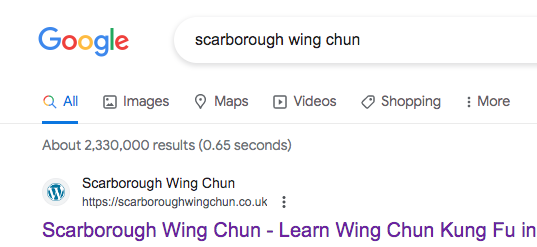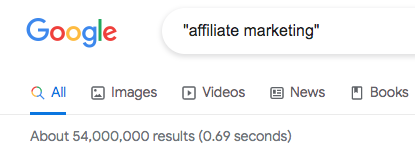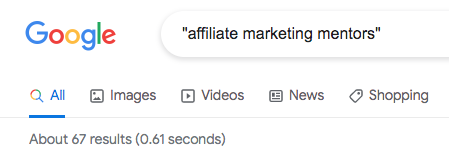Wondering how to rank a website on Google’s first page? Google has a huge list of things to determine a website’s ranking. Things such as domain age, content, backlinks, competition and so on all have an effect on whether you’ll rank. An old domain name with tens or hundreds of thousands of backlinks will certainly be more likely to rank than a brand new website without much content on it.
Where your links come from is also an important factor. Ideally build a natural back link profile from other leaders in your field of expertise. High quality website backlinks are worth far more than low quality ones. But these are hard to get. You can write guest post in order to get backlinks, but many websites don’t offer this service and if they do they have a high bar for their guest bloggers.
But there’s an easier way to rank a website and that’s through finding a good long tail keyword and building your website around it.
How To Rank A Website On Google’s First Page – Locations
Another way to get your website ranked more easily is to build a site based around specific keywords. Location based websites are the easiest to rank for because there’s less competition for certain place names. For example, I built a site for a friend who has a kung fu school in Scarborough. Here’s his website at the very top of Google and I haven’t touched the site for several years:

Of course you might not have a location based business to do this with. But if you do it’s well worth the effort. Buy a domain name with your town/city name in it and your most searched for business related keyword. Then build your site around those particular keywords.
How To Rank A Website On Google’s First Page – Competition
Most websites won’t rank on the first page. After all there’s millions of other competing websites which have more content, more backlinks and more domain authority than yours. Why should Google give you a ranking if there’s a more established one in your same niche? To compete in some niches will be tough and it can take years of link building and content generation to do so. After all this work, your site still might not rank for your chosen keywords. There’s a better way and it’s to start by looking at specific long tail keywords to build your website around.

You can use Google’s keyword planner to find long tail keywords within your particular niche. Simply type your main keyword into the planner and look for longer tail derivatives which you can build your site around. You want to find a good keyword phrase which matches your business and which you can rank for. So it will need to be one which has a lower level of competition than the rest.
When I built this website, I wanted to get some free traffic by ranking on the top of Google. My niche is affiliate marketing but that’s super competitive. So I looked for long tail derivatives and found “affiliate marketing mentors” which had a lot less competition on Google. Compare these numbers on Google for a phrase match of both “affiliate marketing” and then “affiliate marketing mentors”.


The number below the search denotes the competing websites/webpages for the chosen keyword. As you can see, it’s a lot lower for a longer tail keyword.
What Do You Want To Rank For?
It’s helpful to know what keywords you want to rank your website for in the first instance. This will give you an idea about how feasible it is. With a super competitive term, it’s going to take a long longer to rank, and you may never rank for it.
Affiliate marketing, for example is a keyword I’m probably never going to rank for. So find long tail keywords with low SEO difficulty instead, and go after them instead. This might involve getting that particular keyword on every page of your website, building backlinks, making sure image alt tags are present and your headings, article titles, and content all reflect this chosen keyword.
If Google doesn’t see your content as relevant for your chosen keyword, it definitely won’t rank you for it. And of course you don’t really want to rank for keywords which aren’t relevant for your business either, because they would only bring in the wrong kind of visitors!
Less Competition & More Specific Search Intent
Long tail keywords are super important for ranking for a couple of reasons. They are less competitive and so you’re in with a greater chance of ranking for them. But they are also more specific. This means your visitors have a better idea of the content they are searching for. For example, the term “affiliate marketing” is very broad. The search intent behind this search could be any number of things from a casual browser to someone determined to get started and build a business.
But the term “affiliate marketing mentors” is more specific. The search intent is more likely to bring in someone looking for help and support with their affiliate business (i.e. my perfect buying customer!)
Summary
Ranking a website on the top of Google isn’t always possible depending on your chosen keyword for which you want to rank. If you choose longer tail keywords to go after, you have a much better chance of ranking your site. Particularly if you go after the long tail keywords which have a location name in them because you’ll find less websites in your area to compete with (for locally based businesses).
If you don’t have a locally based business, you can instead find longer tail keywords to build your site around. Do your keyword research and look for those keywords within your niche which have the least competition but will also bring in some traffic. You can use Google’s keyword planner to see exactly how many searches your particular keyword gets on a monthly basis. Use a normal Google search (and a phrase match search) to see how many competing websites/pages you’re up against.
See also how to build a niche website.
One thought on “How To Rank A Website On Google’s First Page”
Comments are closed.